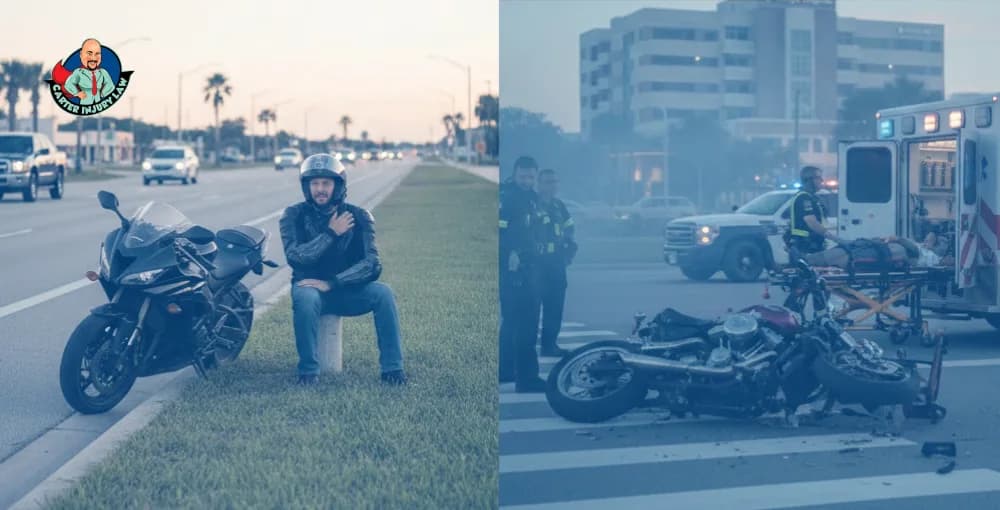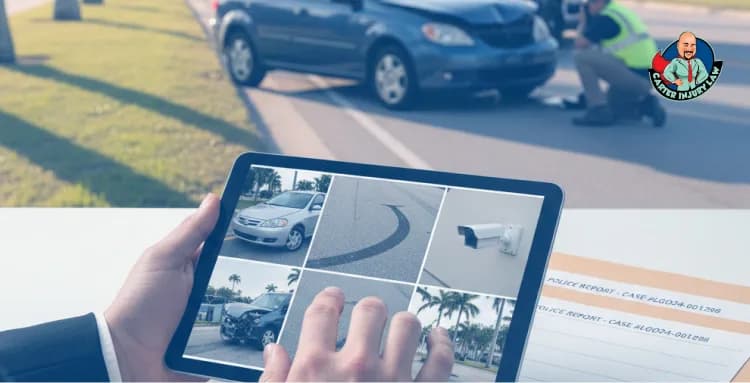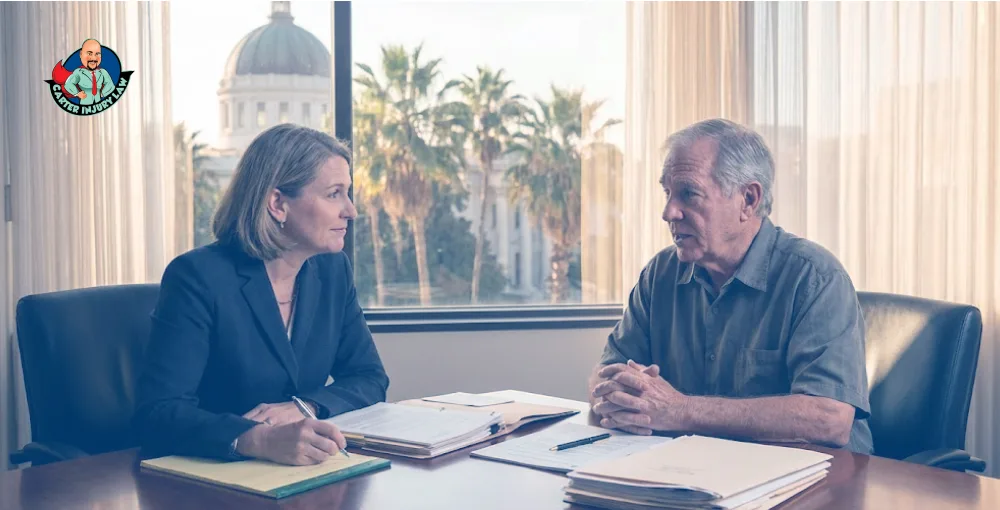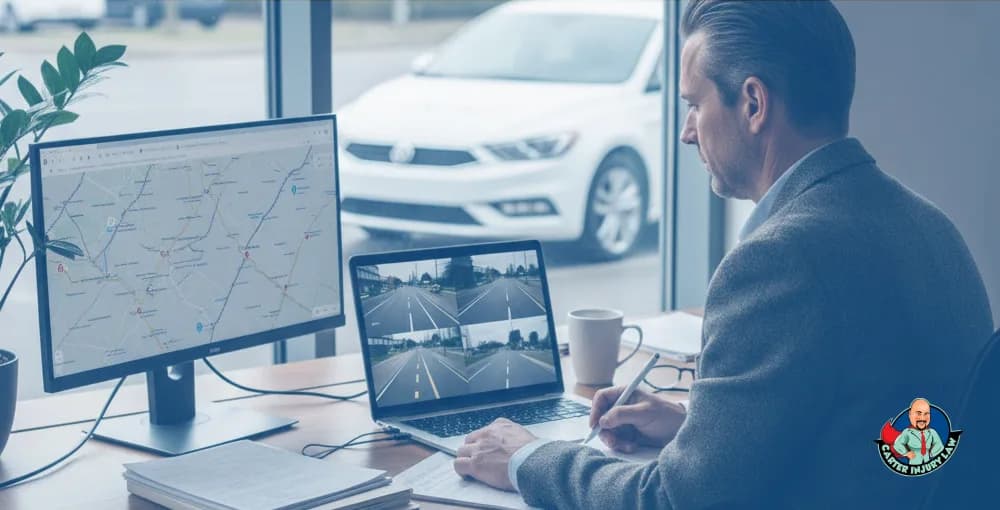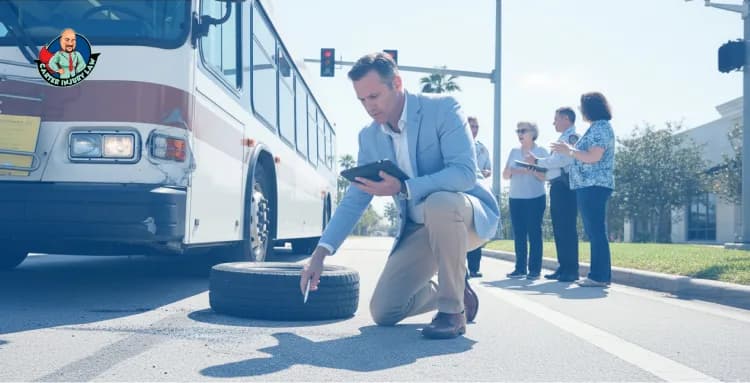You get a letter in the mail. It's from the defense attorney. Inside, it says you’ve been scheduled for a “compulsory medical examination.” Sounds routine enough, right? However, then the questions start piling up.
Who’s this doctor? Why aren’t you seeing your own? What happens if you say the wrong thing or say too much? And here’s the part no one tells you until it’s too late. That exam could be the moment your whole case starts to shift.
Let’s talk about what really happens behind those doors.
1) What Is a CME and Why You Should Take It Seriously
If you're in a personal injury lawsuit, sooner or later the defense is going to schedule something called a compulsory medical examination. Not your regular doctor, not someone who's treated you before. This is their doctor and hand-picked expert.
Now, they’ll sometimes try to call it an IME, an “independent medical exam,” which sounds neutral enough. Don’t fall for it. These exams aren’t independent, and they’re definitely not neutral. This doctor is being paid a lot to examine you and give the insurance company an opinion they can use.
And that’s exactly what they do. They look for ways to say you’re not injured. Or if you are injured, it wasn’t from this accident. Or maybe it was, but now it’s magically healed.
So no, this isn’t just a routine check-up. It’s a key move in the defense playbook. And it sets the tone for what comes next, starting with who’s really pulling the strings behind that exam.
2) Who’s Really Behind the CME? (Not Your Doctor)
Let’s be clear, this doctor doesn’t work for you. The defense attorney chooses them, hires them, and pays them. And not in pocket change. Some of these physicians are making thousands per exam, often seeing one injury plaintiff after another, day in and day out. It’s a revolving door.
From the moment you walk in, the boundaries are clear. You’ll usually be asked to sign something confirming there's no doctor-patient relationship. That means they're not treating you, they’re not diagnosing for your benefit, and they’re definitely not invested in your recovery.
So when the report comes back saying your injuries are minor, unrelated, or magically resolved, it’s no accident. A 2022 review by the Journal of Legal Medicine found that CME doctors agreed with the plaintiff's injury severity just 18% of the time. That’s not a coincidence but a pattern.
And this is exactly why you’ve got to go in prepared. Next up is how to protect yourself the moment you step into that exam room.
3) How to Protect Yourself During the Exam
This part matters more than people think. If you're going to a CME, don’t walk in alone. We send a professional videographer to every single one of our clients. Because when that report comes back saying things didn’t hurt or you didn’t complain, we’ve got the footage to show otherwise.
It’s not just about catching a lie. It’s about keeping things honest. If the doctor lifts your arm and you wince in pain, that moment’s on record. If you clearly say, “That hurts,” and they try to claim you didn’t, we can play the video.
In fact, according to the National Institute for Trial Advocacy, when video is used, plaintiffs are 34% more likely to successfully challenge inaccurate CME testimony. That’s not a small number.
You can also have a court reporter there. Sometimes we bring both. They’ll document every word, just in case anything gets twisted later.
Attorney David Carter explains why CMEs can greatly impact your injury case and what to watch for during your exam
And now that you know how to protect yourself during the exam, let’s talk about how to protect yourself from your own words.
4) What to Say, What Not to Say
A simple rule of thumb when attending a CME is to only answer the questions that are asked. You’re not there to make conversation. You’re not there to win anyone over. You’re there because the defense wants their doctor to look for holes in your case.
Some of these doctors will talk sports, ask about your kids, maybe comment on the weather like it’s small talk in a grocery line. Don’t take the bait. That kind of friendly chatter isn’t just small talk, it’s bait for you to open up. And anything you say can end up in their report.
So be honest, be polite, but stay focused. If something hurts during the exam, say it. Out loud. Don’t try to tough it out. If you feel pain, speak up clearly so there’s no confusion later.
Like we tell our clients: they’re not your friend, they’re not here to help you… answer their questions directly. Now let’s look at what happens if you show up late, or worse, don’t show at all.
5) Be Early or Be Ready to Pay
This part’s not negotiable. If you’ve been scheduled for a CME, show up early. We tell our clients to be there at least 30 minutes ahead. Because if you’re even 15 minutes late, some of these doctors will cancel the exam on the spot and slap you with a massive bill.
And we're not talking about a small fee. According to the Florida Injury Law Journal, some CME doctors in Florida have charged up to $7,000 for no-shows or late arrivals. That’s the kind of bill you don’t want showing up in your mailbox.
One way we protect against this? We get a court order before the exam. That judge-signed order locks in the rules about how much notice they need, what happens if someone’s late, when the report is due, and more. Without it, the defense can play fast and loose with the rules.
Once that clock starts ticking, every step has to be done right. And the next step is to understand what happens after the exam ends.
6) What Happens After the Exam
Once the exam is done, the doctor heads back to their office to write a report. By law, they usually have 30 days to send it in. However, this report doesn’t just land in front of a judge or jury. It’s not automatic evidence.
What really matters is what that doctor says in court. Their testimony, not their paperwork, is what carries weight. But that report still plays a big role. It gives your lawyer a preview of the doctor’s stance about what they’re claiming, what they’re downplaying, and where they might’ve stretched things a little too far.
That’s why your attorney reads it carefully. Every word in that report helps shape the cross-examination. Knowing their playbook before they take the stand can make all the difference.
Next, let’s look at who’s got your back when you walk into that exam room and why not every law firm treats it the same.
7) Not All Attorneys Attend CMEs, But Carter Injury Law Does
This is where law firms start to differ. Some attorneys stay behind the scenes when it comes to CMEs. They’ll prep you, sure but when it’s time for the actual exam, you’re on your own. However, that’s not how we do it.
We go with our clients. We wait in the parking lot. We walk in together. We meet the videographer together. And when the exam starts, we’re right there in the room. Making sure everything goes the way it’s supposed to.
It’s not about dramatics. It’s about presence. And when the defense knows we’re paying attention, they tend to behave a little differently. Now let’s talk about how their opinion lands in court and why that report they write is only the beginning.
8) Confused About Your CME? We’re Right Here
It's unsettling to be told to show up for a medical exam in order to be judged rather than healed. You're not walking into a clinic; you're walking into someone else's plan. And it’s okay if that feels off.
We understand the quiet pressure that builds before a CME. The letters, the schedule, the uncertainty, none of it is intended to make you feel heard. However, that is why we provide something unique. A chance to talk, free of charge. Just a conversation about what this exam really means and how to prepare for it with your rights intact.
Whether the exam is days away or still sitting unopened in your mailbox, you can depend on us.



